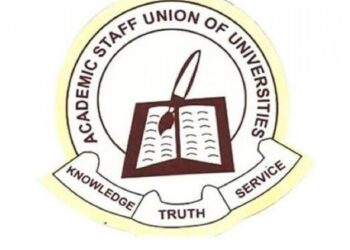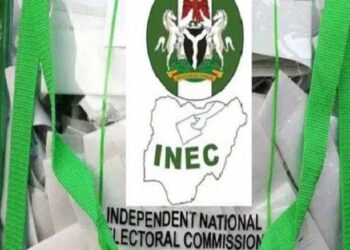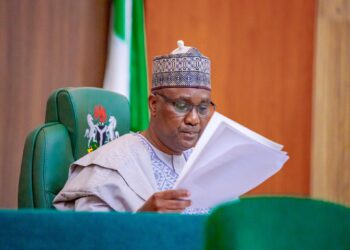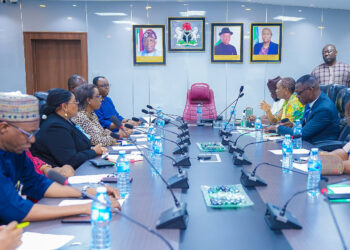Article summary
- The removal of fuel subsidies in Nigeria has led to a significant increase in transportation costs, resulting in financial difficulties for many Nigerians.
- The government should prioritize providing palliatives for the transportation sector to alleviate the impact of the fuel subsidy removal. This can be done through reducing passenger fares, addressing excessive taxes on public transport operators, and implementing mass transportation solutions.
- Embracing compressed natural gas (CNG) as an alternative fuel and establishing the necessary infrastructure can help reduce the cost of fuel and subsequently decrease passenger fares. Additionally, addressing affordability by reducing contributing factors to transportation cost hikes or increasing the minimum wage can tackle the issue of transport poverty.
The recent removal of fuel subsidies in Nigeria has had a significant impact on the cost of transportation. As a result, transportation fares have increased drastically, causing financial difficulties for many Nigerians.
This issue is further compounded by an inflation rate of 22.22%. While the country awaits palliatives from the Tinubu administration, there is a debate on whether the focus should be on providing stipends to poor Nigerians or directing the palliatives towards the transportation sector.
Nairametrics reached out to Chigozie Chikere, a Chartered Member of the Chartered Institute of Logistics and Transport (CILT) Nigeria, to gain insights into this matter. Chikere supports the idea that the Nigerian government should prioritize palliatives for the transportation sector.
Enjoy the conversation.
NAIRAMETRICS: In what ways has the fuel subsidy removal impacted transportation for both commercial and private vehicle owners?
Chigozie Chikere: impact of the removal of fuel subsidies on transportation has been significant. Let’s begin with the availability of fuel at filling stations. Private oil marketers and the Nigerian National Petroleum Company Limited (NNPCL) have been engaged in counteraccusations.
The Independent Petroleum Marketers Association of Nigeria (IPMAN) claims to have ordered 202.5 million litres of products since October 2022 when petrol was priced at N183 per litre. However, NNPCL has not delivered the ordered products thus far.
With the fuel price now at N467.39 per litre (NNPC cost price), NNPC is demanding an additional payment of N284.39 from marketers to cover the backlog of supply. This new figure raises the cost of a 45,000-liter capacity truck to N21 million, compared to the N8.2 million paid in October when fuel was N183 per litre. This has become a contentious issue.
It is evident that each N1 added to the fuel pump price affects transportation costs, often resulting in artificially inflated passenger fares. The increased fuel pump prices have led to a decrease in the number of vehicles on the road, causing more Nigerians to stay at home or resort to walking for transportation.
Both urban and rural dwellers are feeling the impact. In response to the exorbitant transportation expenses, the governments of Edo and Kwara states recently decided to reduce the number of working days to three per week.
In Lagos Island, people are now paying up to N100 per kilometre. For example, a distance of 10 kilometres that previously cost between N400 and N500 now amounts to N1000. I mentioned that the passenger fare increases are artificial because the subsidy on diesel was removed several years ago.
Despite the significant price difference, diesel buses used for passenger transport have been charging the same fare as their counterparts using fuel engines. Diesel currently sells for N750 to N850 per litre, whereas fuel was sold at less than N200 per litre.
Strangely, owners of both diesel and fuel vehicles have been collecting the same passenger fare, yet only fuel vehicle owners complain about running at a loss. This raises the question: why do passenger fares increase astronomically whenever there is an increase in fuel pump price?
NAIRAMETRICS: How do you think this fuel subsidy removal will pan out in terms of impact on public transportation systems for the rest of 2023?
Chigozie Chikere: Fuel subsidy removal is not a bad idea at all. When former President Obasanjo introduced the concept of deregulation, it was adequately explained to Nigerians, and they embraced it.
However, the issue lies in the absence of a well-defined program that would have paved the way for full deregulation. If such a plan had been in place, we would have been better prepared for the announcement made by the new administration.
Nevertheless, it is better late than never. Now that fuel subsidies have been removed, what truly matters is the steps being taken to mitigate the impact on transportation.
We have been told that a nation’s economy relies not only on its railway system but also on its public transport buses. Therefore, any action aimed at reducing passenger fares will have a positive impact on the economy.
It is crucial to recognize that fuel prices are not the sole contributors to fare increases; multiple taxations also play a significant role. In Lagos Island alone, illegal taxes weigh heavier than legal taxes.
These are the areas where the government should focus its attention to reduce passenger fares, especially during this period. The earmarked $800 million intended to alleviate the burdens on the masses following the fuel subsidy removal should be utilized wisely, particularly in implementing mass transportation solutions.
If the government can also provide revolving loans for private operators in the transportation sector, I believe the impact on Nigerians will not be as severe as it currently is, and we can end the year on a more positive note.
NAIRAMETRICS: Recently, PwC said compressed natural gas as an alternative to petrol for vehicles cannot happen in the short to medium term due to cost and lack of infrastructure. Do you agree?
Chigozie Chikere: If the conversion to compressed natural gas (CNG) becomes mandatory, the necessary funds for establishing infrastructure and covering overall costs will be available. Consider the period between 2020 and 2022 when the projection was that approximately 2 million vehicles would be operating on autogas.
Unfortunately, due to a lack of political will, the National Gas Expansion Program (NGEP) was not taken seriously. However, in Nigeria, there are functioning filling stations that are willing to provide the required infrastructure for the sale of CNG if mandated to do so.
The main obstacle appears to be funding. If the government prioritizes the NGEP, compressed natural gas can become a viable alternative to fuel, benefiting Nigeria as a whole.
Now, let’s explore ways in which Nigerians can cope with the increase in transportation costs resulting from fuel subsidy removal. This applies to both urban and rural dwellers.
To help Nigerians manage the impact of increased passenger fares, the government should genuinely embrace the CNG alternative. This will lead to more vehicle conversions and subsequently reduce the cost of fuel.
As a result, passenger fares will decrease. Additionally, the government should reduce the excessive taxes imposed on public transport operators, as these taxes contribute to the high cost of transportation.
What truly matters in transport fares is not just the amount but also the issue of affordability. The global benchmark for affordability is when individuals spend a maximum of 10% of their monthly income on transportation.
However, in Nigeria, people spend up to 50% or more of their monthly income on transportation, which is unreasonably high. Therefore, addressing affordability is a critical challenge. When individuals spend more than 10% of their monthly income on transportation costs, it is known as transport poverty.
The government can tackle this issue by either reducing the contributing factors to transportation cost hikes or by increasing the minimum wage for workers. By doing so, future increases in passenger fares will not pose a problem for the Nigerian masses.
NAIRAMETRICS: In your capacity as a mobility expert, how do you advise the government to tackle transportation issues in the short to medium term? Can we expect the Tinubu administration to deliver on its promises for transportation palliatives?
Chigozie Chikere: As large as the Nigerian transportation sector is in Nigeria, it is not regulated. even after setting up the National Transport Commission. At the national level, there is no national transport policy, it is only a few states like Lagos that have such a policy.
Since the sector is private sector driven, pricing and other factors are left in the hands of the private sector. That is a place the Tinubu administration needs to look into.
All the planned palliatives to reduce the burden of fuel subsidy removal need to be about transportation, as opposed to sharing stipends to people. The Tinubu administration should look into the regulation of bus fare pricing nationwide.
This must extend beyond the urban settlements to the rural areas as well. In the short term, the government must look for avenues to reduce the cost of transportation.
Also, they must remove all the touts collecting illegal taxes from transporters on the roads as a way of encouraging the people. if that is not done, the bus operators will continue to collect high passenger fares and Nigerians will continue to suffer.
The National Transport Commission should be made to understand that their work has been cut out for them, and the issue of transportation cannot continue to be overlooked by the government.























Well articulated. Thanks.
Oando and LAMATA are successfully piloting fully-electric mass transit buses in Lagos, 50% of all new vehicle sales in Europe are electric, but we’re still talking about CNG, a technology that debuted in the 1970s and has never taken off in a considerable fashion in any automotive market in the world?
It’s impressive the lengths the oil and gas industry will go to peddle bad policy prescriptions in order to maintain their cut of the national cake.